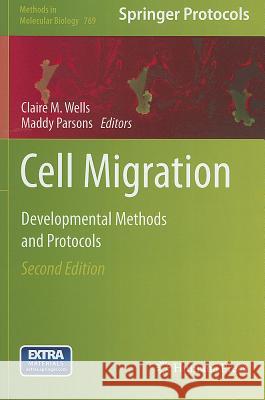Cell Migration: Developmental Methods and Protocols » książka
Cell Migration: Developmental Methods and Protocols
ISBN-13: 9781617792069 / Angielski / Twarda / 2011 / 476 str.
Cell migration is a key component of many biological processes including embryonic development, immune responses, wound healing, organ regeneration, and cancer cell metastasis, thus making it an exciting and crucial field of study. The aim of Cell Migration: Developmental Methods and Protocols, Second Edition is to bring together a wide range of these techniques from the more basic migration assays, which are still the foundation of many cell migration studies, to state-of-the-art techniques and recent technical advances. Divided into three convenient parts, the volume begins with a number of basic in vitro migration assays including measurements of wound healing, cell scattering, invasion, and chemotaxis, as well as more complex measurements of transendothelial migration, the use of microfluidic chambers, and imaging cell migration in 3D. It continues with procedures for the imaging and measurement of cell migration in vivo including protocols for the use of chick, drosophila, and zebrafish embryos, and methods to measure metastatic spread and angiogenesis in mice, then concludes with a vital section on emerging techniques in the cell migration field including the use of TIRF, FRAP, and FRET microscopy. Written in the highly successful Methods in Molecular Biology series format, chapters include introductions to their respective topics, lists of the necessary materials and reagents, step-by-step, readily reproducible laboratory protocols, and notes from the experts on troubleshooting and avoiding known pitfalls.Comprehensive and up-to-date, Cell Migration: Developmental Methods and Protocols, Second Edition provides a comprehensive catalogue of techniques for the study of cell migration that can be used as a useful reference source for any researcher who wishes to explore this significant area of cell biology.











